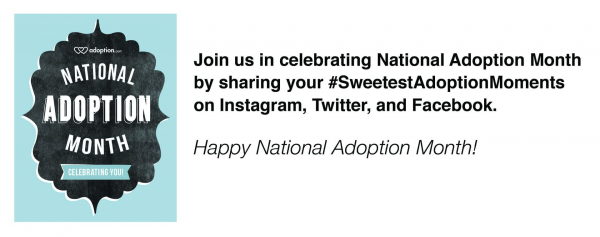Important Things To Consider Before Adopting An Older Child From Foster Care
One of the biggest challenges of adopting from foster care is the unknown. There are countless variables that affect children who have experienced trauma. Even with a thorough history, there is no way to predict the behaviors and challenges that the child, and the family, may face in the future.
This is especially true of older children. Unfortunately, in most cases, the longer a child has been in the foster care system, the more trauma they have experienced. These wounded children do not deserve the reputation that they have as “bad kids.” They are children whose short lives have been filled with pain, instability, and uncertainty.
As a foster parent who has loved and cared for children with severe emotional impairments and special needs, the most important piece of advice I can give to those considering foster care or adoption is this: Know yourself.
The most important piece of advice I can give to those considering foster care or adoption is this: Know yourself.
I’ve compiled a list of questions for pre-adoptive parents to ask themselves. These questions are not meant to frighten or discourage those considering foster care or adoption and there are no “right” answers. Rather, they are meant to assist potential foster and adoptive parents in recognizing their strengths and weaknesses and, most importantly, help them consider the realities of living with and parenting a child with a difficult past.
Parenting Abilities
Are you stable? Patient? Persistent? Committed? Consistent? Reliable? Responsible? Optimistic? Confident? Organized?
Do you do what you say you are going to do? Do you follow through on most things or do you get excited about something and then give up after a few days/weeks/months?
Are you someone who others rely on or do you need a lot of support? Can you manage your current responsibilities and family now easily or do you feel like you are struggling most days?
Are you flexible? Could you handle plans needing to be changed suddenly and often due to the needs or behavior of your child?
How do you handle stress? Are you easily shaken? Are you good in a crisis or do you break down?
How do you respond when you are challenged? Are you defensive? Do you get angry? Do you yell? Do you retreat?
Do you have any mental health issues that could be triggered in difficult circumstances or when you are under an exceptional amount of stress?
Couples: Are you both 100% on board with the decision to adopt?
Couples: Are you good communicators who will support one another when the going gets tough or do you tend to place blame or lash out when facing difficulty?
Preparation
Have you spent a significant amount of time with children the age and gender of those you are considering adopting?
Have you spent a significant amount of time with challenging or special needs children?
Have you had conversations with foster parents who have fostered or adopted a child of the age and gender you are considering adopting?
Have you read The Connected Child, The Explosive Child, or other books on parenting children who have experienced trauma? (Click here for a list of recommended reading.)
Have you researched or had training on the lifelong affects of trauma in childhood? Do you know what an ACE score is and the risk factors associated with childhood trauma?
Do you have a strong and loving support system? Do you have friends or family who can provide you with respite care in times of need? Are your friends and family supportive of your decision to adopt?
Do you know the right questions to ask about a child you are interested in adopting? Have you dug deep and pushed for a full and extensive history on the child?
Have you read your child’s foster care case file? Medical records? I.E.P? 504 plan? Psychological evaluation? If not, are willing to track them down and study them?
Have you spoken at length with one or more of your child’s former foster parents? Have you had several meetings and discussions with your child’s caseworkers?
Are you ready, willing, and able to be an advocate for your child now and in the future to provide him with the services and support he needs to succeed?
If your child is of a different race or culture, have you considered the challenges that interracial families face? Have you researched the struggles of adoptees from interracial families?
If you are adopting a child from a different race or culture, have you considered how you will integrate that child’s race and/or culture into your everyday life? Do you currently have friends or family who are from the same race or culture as your child? If not, how do you intend to remedy that?
Sacrifice
Have you considered if you are willing to move for your child? Change jobs? Switch schools?
Have you considered what you are you willing to sacrifice for your child? Sleep? Time? Money? Security? Friends? Family? Goals? Vacations? Social Life? Hobbies? Attending church?
Have you talked to your child’s caseworkers about worst-case scenarios for the future?
Have you thought about how you would cope and what services and support are available to you, should those worst-case scenarios happen?
The Most Important Question
If your child’s behaviors and challenges never improve, are you willing to do whatever it takes to uphold your promise that he will remain your child forever?
Learn more about how trauma can affect a child throughout his or her life.








